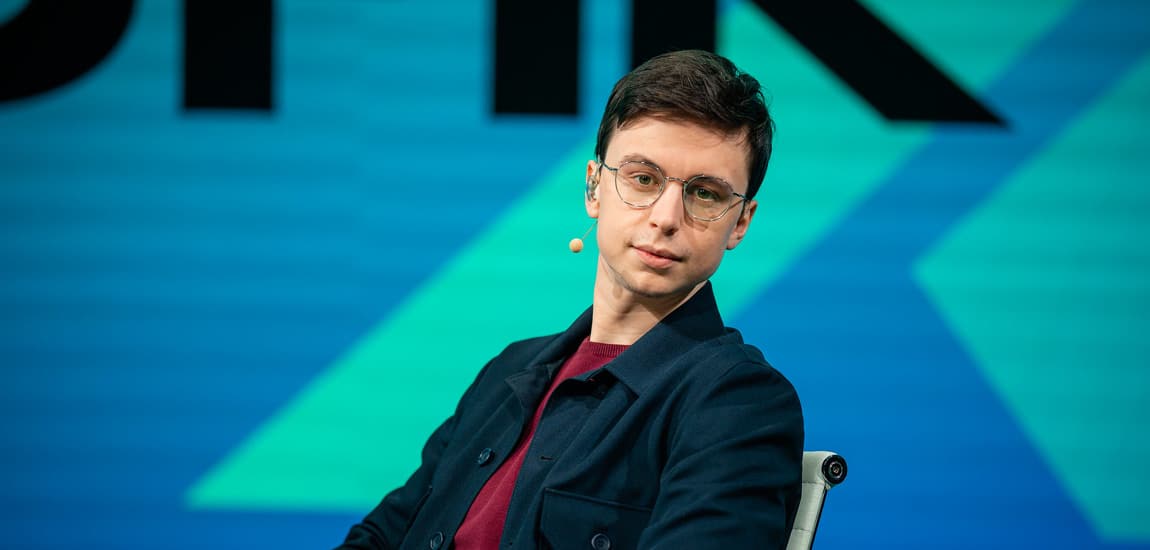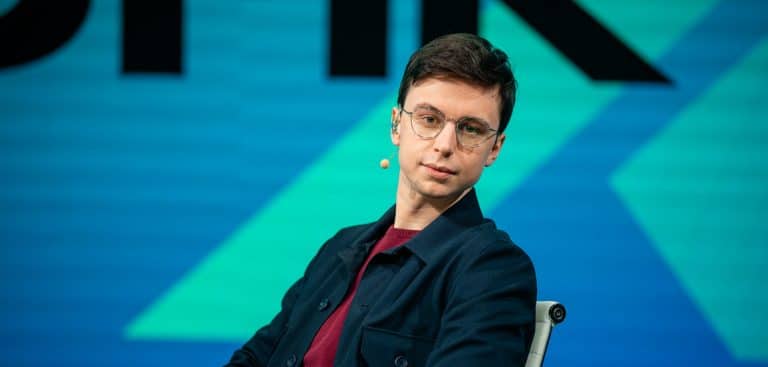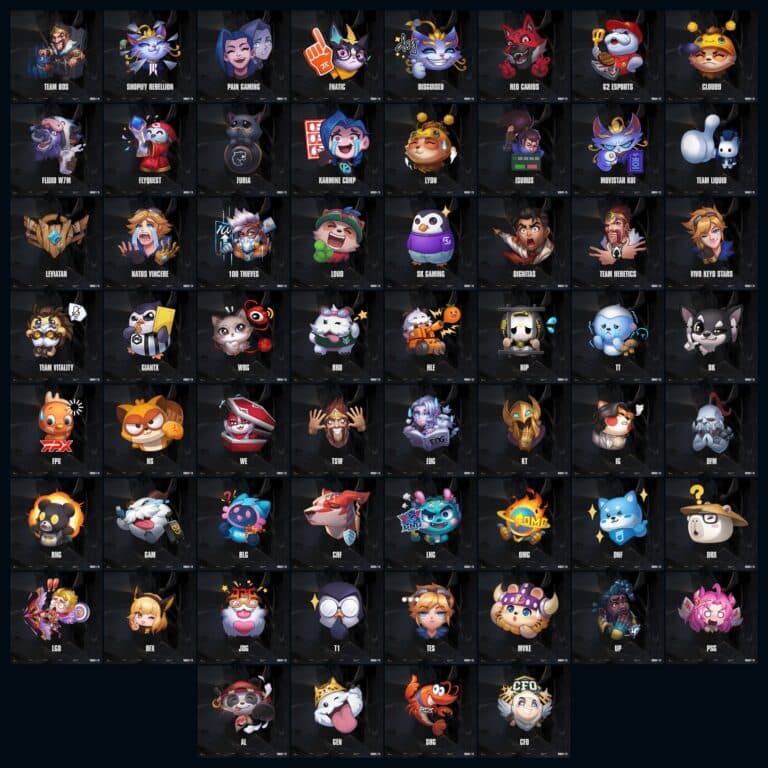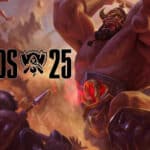Is LoL MSI 2025 a new low for LEC teams?
Jack Stewart, Senior Editor
Last Updated: 07/07/2025
MSI is still ongoing, but it’s already official: Europe’s LEC is the weakest League of Legends region in the world.
EMEA’s representatives, Movistar KOI and G2 Esports, failed to win a single series during the Main Stage. Even before that, G2 desperately struggled in the Play-Ins and barely squeaked by 3-2 against FURIA and GAM Esports.
A disappointing 3-1 loss to Taiwanese team CBTC Flying Oyster eliminated MKOI, while G2 crashed out after an embarrassing 3-0 defeat at the hands of North American rivals FlyQuest.
It was the first time an APAC team had won a best-of-five against a ‘major region’ in 13 years, the first time since the famous Taipei Assassins won Worlds in 2012.
And Europe’s record against NA opponents in the last two years is now a dire 3-13.
EU is officially the worst major region
— Caedrel (@Caedrel) July 5, 2025
how did this happen
where did it all go wrong pic.twitter.com/UHsEuZf73Z
You could argue that it was a perfect storm. EMEA’s teams came into MSI’s unforgiving format low on confidence and had to battle against rosters that will likely go down in their region’s history as some of the best.
This FlyQuest line-up might be one of the strongest rosters NA has ever put together, at least certainly in recent years. This CFO team are clearly the real deal, a special team that pushed T1 to the limit with a generational talent in teenager Tsai ‘HongQ’ Ming-Hong.
There were even otherworldly factors at play. The Grandmother of CFO jungler Yu ‘JunJia’ Chun-Chia apparently travelled to a Taoist temple to ask if her Grandson would be successful, and the deity said yes. This encouraged Junjia to become a pro player, and he has since become a consecutive, two-time MVP for his region.
But that’s far too kind, you didn’t need a deity to know that the LEC would struggle at MSI this year.
A LoL player decided to go pro because his grandmother journeyed to a Taoist temple to ask a god if he would be successful
— Dexerto (@Dexerto) July 6, 2025
That deity said yes, and JunJia has been the MVP of his region for 2 years straight as one of the world's best junglers
Source: Home Run Taiwan pic.twitter.com/tqwAoJgYvu
European teams have been struggling internationally for a while; especially for the last two years as no LEC team has made it past the Swiss Stage at the previous two World Championships. It’s perhaps the region’s longest ever slump, but nothing new; Europe has had bad results at international tournaments before. What really matters, and what is concerning, is just how flaccid some of the performances were this tournament. Especially from G2.
EMEA has lost its identity as a region.
There was no aggression, no creativity, no attempt to even try and make their opponents uncomfortable. The EMEA representatives were playing with fear and reservation, that is the biggest worry.
The LEC has an identity crisis
“We brought our own flair. G2 when they showed up in their own style, they’re winning. When Fnatic are doing their style, they’re winning.
“Just stay true to yourselves. Do not try to chase anyone, do not try to copy anyone. Just be confident, don’t limit yourselves either. Go into this tournament, play your next games believing that you can f***ing win everything.
“That is the mentality you need to have to conquer the best. Anything is possible if you believe and play with confidence and stay true to yourselves, so do that for me, Europe. Please.”
Those were the notorious words of former LEC coach Jakob ‘YamatoCannon’ Mebdi back in 2018. That year, Fnatic reached the Worlds final. The next year, G2 won MSI and reached a Worlds final themselves. European League of Legends had entered its golden age. And now, seven years on from that speech, we couldn’t be further away from that success.
Famous football manager Pep Guardiola has his tactics down to a science and, despite his success, many armchair fans claim he has killed football. He is all about control and has taken flashy and exciting players who could dribble past an entire team, like Jack Grealish, and turned them into boring robots who pass sideways whenever any opponent is within 10 feet of them.
G2 have taken a similar route. Last year, their roster had explosive highs but ultimately didn’t succeed internationally so management decided they wanted something more consistent and stable. The result has been a stagnant, predictable team with no inventiveness who are more consistent, but at a much lower level than their predecessors.
On the LTA North’s Dive podcast, former pro William ‘Meteos’ Hartman explained why the theory behind this change was all wrong:
“This doesn’t feel like the G2 you think of when you think of Europe in international tournaments… I feel like they’re known for being a creative team, almost chaotic in the way they play. Even if there were low lows, those high highs were worth it. I feel like you need those risk-taking moments.
“I don’t think the answer is saying we don’t want any risk of looking horrible, so we’re just going to play really controlled and safe. A lot of the time, that’s easier to play against. And you’re playing against these teams that are doing that too, but just way better.”
Isaac ‘Azael’ Cummings-Bentley agreed and added to that point: “G2 was always so fun to watch and scary to play against because their players were going to play hyper-aggressive, they were going to be in your face.
“Yes, sometimes they’d have these games where they’d run it down, G2 at their peak would still lose to what was called the wildcard regions… but then they’d turn around and beat T1. They had that confidence to keep going at you, and I felt like G2 in this event looked very reserved. I hate to use this term, but at times it felt like they were playing not to lose instead of playing to win.”
hope dies last 🥺 it’s been a trying few years for sure pic.twitter.com/d4oQ9KTou4
— Eefje Depoortere (@sjokz) July 5, 2025
Perhaps, Fearless Draft makes it harder to pull out these pocket picks. That pick can only be played for one game, so it can’t define the series and impact future drafts. Back in 2019, G2 practically won an entire final because of the bizarre Sona Taric bot lane.
But the reason we all enjoy Fearless, it makes creativity mandatory; teams have to pull out more obscure picks. If anything, Fearless offers more opportunities for players to be inventive and express themselves.
We’ve seen teams play a comp of four or five top lane or bot lane champions in the first game to target a player. A team could play something odd in Game 1 to try and cheese a win while their opponents waste their strong meta picks. Even in game five, only 60 champions will be banned in total, while there are 170 champions in the game, there have to be surprise picks that could still make an impact.
Who’s to blame for the LEC’s MSI woes?
GM role is very overpowered and baffling decisions has been made in the past years
— Erik Wessén (@Treatz) July 6, 2025
After any kind of major loss, fans are going to want to point fingers, and as usual, the blame goes to the decision makers on each team, as NLC support Erik ‘Treatz’ Wessén does in the tweet above.
It’s always difficult to judge without being there for the decision-making process, but there have been questionable choices. We all know how messy the off-season has been for Fnatic, with Grabbz adamant Fnatic would make LEC Summer changes after accusing players of not putting the work in.
The fact that an experienced organisation like Fnatic is panicking and making last-minute roster changes before the final split of the year and Worlds tells you that something isn’t right. I don’t think mad GM decisions are the only reason the LEC is currently struggling, but these questions do have to be asked.
One factor I won’t accept is the notion that there isn’t the talent pool in Europe, that’s nonsense. And I’m not going to say that Europe lost all of its most talented players to NA’s higher wages either. Yes it’s painful that Kacper ‘Inspired’ Słoma isn’t playing in the LEC anymore but there were four Europeans in the LTA North last split.
The talent issue is because the region is still in a transition period and, more importantly, players aren’t being developed properly. The LEC has lost a lot of elite players like Marcin ‘Jankos’ Jankowski, and one of EU’s goat Perkz just retired from LoL esports last month. But other amazing talents have emerged like Karmine Corp’s Caliste ‘Caliste’ Henry-Hennebert.
So many rookies are treated as disposable. They get promoted for a split or two, and then when they don’t immediately succeed, they are replaced and never considered again.
Just look at Paweł ‘Czekolad’ Szczepanik, who recently played in the EMEA Masters final. Five years ago, he played for Excel Esports, who had an unfortunately poor tenure in the LEC, for one Spring Split and because he couldn’t carry that struggling team into the Playoffs, he hasn’t been given another chance since.
I'm gonna use the same example as Crownie did on stream which is @CzekoladLol
— Mads Schwartz (@Doss_lol) July 2, 2025
I'm not saying hes some god that every team should rush to get
But he has won a lot in his career including EMEA, played LEC and been consistently high elo. Yet i know he was struggling to find a team
Czeckolad lost that recent EMEA Masters final to Los Ratones, whose roster are mostly former LEC players. It’s not because the previous generation of players are necessarily more talented, it’s because they’ve had time to compete at the top level and learn their trade while competing against the best.
And it comes back to identity. Europe used to take pride in its talent, it was the advantage LEC teams had over North America and their reliance on importing. Most LEC teams have given up on investing in academy rosters, and more and more are looking to imports from Asia.
As YamatoCannon said years ago, where is the belief? EMEA needs confidence in itself; the region needs to back its talent and have faith that they can beat any team playing their style. Creativity and long-term investment in talent, that’s what the LEC was built on, and that is the only way it will be able to thrive again.
While LEC teams regroup, you can find odds on the next MSI champion on LoL betting sites.
Jack Stewart, Senior Editor
In my seven years of esports writing, I've introuduced esports coverage to newspapers, interviewed some of the biggest names in the industry, and driven viewers mad with the puns in my YouTube scripts. I'm most proud of the latter.
Stay Updated with the Latest News
Get the most important stories delivered straight to your Google News feed — timely and reliable





From breaking news and in-depth match analysis to exclusive interviews and behind-the-scenes content, we bring you the stories that shape the esports scene.
Monthly Visitors
User Satisfaction
Years experience
Latest LEC










